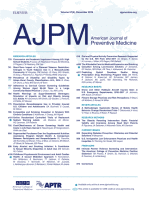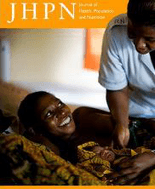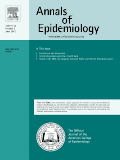
Epidemiology and Health
Scope & Guideline
Connecting knowledge and practice in epidemiology.
Introduction
Aims and Scopes
- Population Health Studies:
Research that examines health outcomes in populations, focusing on factors such as demographics, socioeconomic status, and access to healthcare. - Chronic Disease Epidemiology:
Investigations into the prevalence, risk factors, and outcomes of chronic diseases such as diabetes, cardiovascular diseases, and cancer. - Infectious Disease Surveillance:
Studies focused on the transmission, prevention, and control of infectious diseases, including responses to outbreaks and vaccination strategies. - Behavioral and Lifestyle Factors:
Research exploring how behaviors such as diet, physical activity, and substance use affect health outcomes and disease risk. - Environmental Health:
Studies examining the impact of environmental factors, such as pollution and climate change, on public health. - Health Policy and Systems Research:
Analysis of healthcare policies, systems, and interventions aimed at improving health outcomes and access to care.
Trending and Emerging
- COVID-19 Research:
A significant increase in studies related to COVID-19, focusing on its epidemiology, vaccination strategies, and health impacts, reflects the urgent need to understand and mitigate this global pandemic. - Mental Health Impacts of the Pandemic:
Emerging research on the mental health consequences of the COVID-19 pandemic, including anxiety, depression, and stress among various populations, highlights the growing recognition of mental health as a critical component of public health. - Health Inequalities and Disparities:
A trend towards exploring socioeconomic and racial disparities in health outcomes, particularly in the context of COVID-19 and other chronic diseases, emphasizes the need to address systemic inequities in health. - Digital Health and Telemedicine:
Research on the effectiveness of telemedicine and digital health interventions has gained momentum, driven by the necessity of remote healthcare delivery during the pandemic. - Environmental and Climate Health:
Increasing attention to the health impacts of environmental changes and climate-related issues reflects a growing awareness of the intersection between environmental health and public health outcomes.
Declining or Waning
- Traditional Infectious Disease Research:
There has been a noticeable decline in studies focused on traditional infectious diseases outside of current outbreaks, such as tuberculosis and malaria, possibly due to the overwhelming focus on COVID-19. - General Nutrition Studies:
Research on general nutrition and dietary patterns has decreased, as the focus has shifted towards specific dietary impacts on chronic diseases and health outcomes. - Elderly Health Research:
While still important, the volume of research specifically targeting elderly health issues has lessened in favor of broader population health studies and interventions. - Longitudinal Cohort Studies:
The frequency of new longitudinal cohort studies appears to have waned, possibly due to the challenges of funding and maintaining long-term follow-up among participants. - Mental Health Epidemiology:
Although mental health remains a critical area, the specific focus on epidemiological studies in this field has decreased, possibly overshadowed by urgent public health issues related to infectious disease outbreaks.
Similar Journals

JOURNAL OF THE EGYPTIAN PUBLIC HEALTH ASSOCIATION
Empowering global health through innovative research.JOURNAL OF THE EGYPTIAN PUBLIC HEALTH ASSOCIATION, published by SPRINGER, is a prestigious open-access journal that has been at the forefront of public health research and advocacy since its inception. With an E-ISSN of 2090-262X, this journal serves as a vital resource for researchers, health professionals, and academics who seek to disseminate and access high-quality studies in various subfields of public health, including community health, health informatics, and environmental health. The journal has attained a commendable position within the academic landscape, achieving Q1 status in Community and Home Care and Q2 in Health Informatics and Public Health, as of 2023. Its impressive Scopus rankings further highlight its impact, placing it in the top percentile of journals in the realms of health sciences. With a commitment to open access since 2019, the JOURNAL OF THE EGYPTIAN PUBLIC HEALTH ASSOCIATION not only champions innovative research but also fosters collaboration among public health professionals worldwide, making it an indispensable platform for sharing knowledge and driving advancements in global health.

Lancet Regional Health-Western Pacific
Leading the Way in Western Pacific Health ResearchLancet Regional Health-Western Pacific is a premier academic journal published by Elsevier, focusing on the diverse and dynamic field of health in the Western Pacific region. With an impressive Q1 ranking across several vital categories such as Geriatrics and Gerontology, Health Policy, Infectious Diseases, and Public Health, this journal is positioned at the forefront of health research and policy development. The journal aims to provide a platform for innovative research, reviews, and opinion pieces that lead to improved health outcomes and influence health policy across this geographically and culturally rich area. Offering open access to its content, Lancet Regional Health-Western Pacific ensures that the latest findings are readily available to researchers, professionals, and policymakers alike, ultimately contributing to the global discourse on health issues. As it continually strives to maintain rigorous publication standards, the journal serves as a crucial resource in promoting evidence-based practices and driving advancements in public health.

Lancet Regional Health-Europe
Elevating European Health Discourse and SolutionsThe Lancet Regional Health-Europe is a prestigious academic journal published by Elsevier, dedicated to advancing research in the fields of Health Policy, Internal Medicine, and Oncology. As part of a reputable series that focuses on regional health issues, it aims to publish high-quality, peer-reviewed articles that contribute to the understanding and improvement of health systems across Europe. With an impressive impact factor reflected in its Q1 quartile rankings for 2023—ranking #2 in Health Policy, #8 in Internal Medicine, and #22 in Oncology—it is recognized for its significant contribution to cutting-edge research. The journal offers open access options, ensuring that findings are widely disseminated and accessible to researchers, healthcare professionals, and policy-makers alike. By fostering collaboration and interdisciplinary discourse, The Lancet Regional Health-Europe serves as an essential platform for innovative solutions and strategies in health care that address the unique challenges faced within the European context, making it an invaluable resource for academics and practitioners dedicated to public health advancement.

AMERICAN JOURNAL OF PREVENTIVE MEDICINE
Elevating public health knowledge for a healthier tomorrow.AMERICAN JOURNAL OF PREVENTIVE MEDICINE is a premier publication in the fields of Epidemiology and Public Health, published by Elsevier Science Inc. With a commendable impact factor and ranking within the top quartile for both Epidemiology and Public Health categories, this journal serves as a vital source of cutting-edge research, reviews, and critical insights aimed at promoting health and preventing disease. Since its inception in 1985, the journal has been dedicated to disseminating high-quality articles that inform health policy, improve clinical practices, and enhance community health initiatives. It is readily available to researchers and professionals committed to advancing their knowledge and practice, ensuring the continued evolution of preventive medicine. The journal's reach and influence, underscored by its impressive rankings, position it as an essential resource for those looking to make a meaningful impact in the world of preventive health.

China CDC Weekly
Exploring the forefront of epidemiology and infectious diseases.China CDC Weekly is an esteemed academic journal published by the Chinese Center for Disease Control and Prevention, dedicated to disseminating critical research in the fields of epidemiology, infectious diseases, and public health. Since its inception in 2019, the journal has rapidly established itself as a key resource for scholars, professionals, and students, achieving notable rankings, including Q2 in Epidemiology and Infectious Diseases, and Q1 in Public Health, Environmental, and Occupational Health for 2023. With an emphasis on the latest advancements and data-driven insights, China CDC Weekly offers a platform for researchers to contribute to the vital discourse surrounding health policies, disease control, and public safety in a rapidly evolving global landscape. As an open-access journal, it ensures widespread availability and visibility of research findings, reflecting its commitment to advancing public health knowledge in China and beyond. The conference years from 2019 to 2024 further highlight its responsiveness to emerging health challenges and trends, positioning the journal as a preeminent publication for interdisciplinary collaboration and innovation.

Preventing Chronic Disease
Championing open access to vital health discoveries.Preventing Chronic Disease (ISSN: 1545-1151, E-ISSN: 1545-1151) is a premier open-access journal published by the CENTERS FOR DISEASE CONTROL & PREVENTION in the United States. Since its inception in 2004, this journal has played a vital role in disseminating research focused on the prevention of chronic diseases, offering insights into innovative public health strategies and policies. With a strong commitment to advancing health knowledge, it has achieved a notable impact factor that reinforces its significance—ranking in the Q1 category for both Health Policy and Public Health, Environmental, and Occupational Health as of 2023. With Scopus rankings placing it in the top 13% and 16% in its respective categories, Preventing Chronic Disease serves as a crucial platform for researchers, professionals, and students dedicated to combating chronic conditions. The journal's open-access model ensures that its valuable findings are accessible to a wide audience, fostering collaboration and innovation in public health research and practice.

JOURNAL OF HEALTH POPULATION AND NUTRITION
Exploring the intersection of health, nutrition, and population dynamics.JOURNAL OF HEALTH POPULATION AND NUTRITION, published by BMC, is a pivotal open access journal that has been disseminating impactful research since 2000. With a commitment to enhancing public health and advancing knowledge in nutrition and population health, this journal plays a critical role in addressing issues affecting health outcomes globally. It boasts an impressive impact factor evidenced by its Q2 ranking in 2023 across multiple categories, including Food Science and Public Health, indicating its relevance and influence in these fields. Based in the United Kingdom, this journal is dedicated to providing a platform for researchers and practitioners alike to share their findings and insights, thus fostering a collaborative environment focused on improving health and nutrition standards. The open access model, adopted in 2015, ensures that the valuable research published is freely available, significantly enhancing its reach and promoting widespread application of findings. With this journal's continued emphasis on multi-disciplinary research, it is an essential resource for anyone involved in the study or practice of health populations and nutrition.

Advances in Public Health
Fostering collaboration for a healthier tomorrow.Advances in Public Health is a distinguished open access journal dedicated to the dissemination of cutting-edge research in the field of public health, published by HINDAWI LTD. Since its inception in 2014, this journal has aimed to foster innovation and facilitate critical discourse on public health challenges, policies, and practices across the globe. With an ISSN of 2356-6868 and an E-ISSN of 2314-7784, it maintains a robust presence in the academic community, featuring prominently with a Scopus rank of #213/665 and proudly residing in the Q2 category within Public Health, Environmental, and Occupational Health as of 2023. Based in Egypt, and serving an international readership, Advances in Public Health provides a platform for researchers, professionals, and students to share their findings and insights, ultimately contributing to the improvement of health outcomes worldwide. Its open access format ensures that valuable research is available to a broader audience, promoting collaboration and knowledge sharing within the public health domain.

IJID Regions
Fostering collaboration in the fight against infectious diseases.IJID Regions is a pioneering open access journal published by Elsevier, focusing on the critical fields of epidemiology, infectious diseases, and public health. Established in 2021, the journal aims to provide a platform for disseminating high-quality, innovative research that addresses pressing health issues and informs evidence-based practices in communities around the globe. With its impact factors reflecting a Tier Q2 and Q3 ranking in various medical subcategories on the Scopus platform, IJID Regions is positioned as a valuable resource for researchers, health professionals, and policy-makers striving to enhance public health outcomes. This journal not only champions open access since its inception, promoting the free flow of information, but also welcomes contributions that shed light on contemporary challenges in environmental and occupational health. Its commitment to fostering dialogue and collaboration in the health sciences is paramount, making it an essential read for those engaged in advancing public health knowledge and initiatives.

ANNALS OF EPIDEMIOLOGY
Pioneering Insights for a Healthier TomorrowANNALS OF EPIDEMIOLOGY, published by Elsevier Science Inc, stands as a leading journal in the field of epidemiology, with an impressive impact factor that reflects its significant contribution to public health research. With an ISSN of 1047-2797 and an E-ISSN of 1873-2585, the journal has been at the forefront of disseminating high-quality, peer-reviewed research since its inception in 1990. It is consistently ranked in the first quartile (Q1) for epidemiology in 2023, occupying the 29th position out of 148 in the Scopus Medicine category, with a percentage ranking in the 80th percentile. The journal aims to provide a comprehensive platform for the interdisciplinary exchange of pioneering epidemiological studies, exploring diverse health issues and their societal impacts. Researchers, professionals, and students alike will find valuable insights and innovative methodologies within its pages, making it an essential resource for anyone engaged in the study and application of epidemiology. Its headquarters located in the United States (STE 800, 230 Park Ave, New York, NY 10169) further reinforces its influence in the academic community.